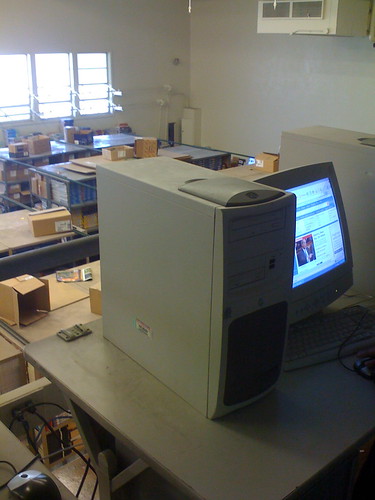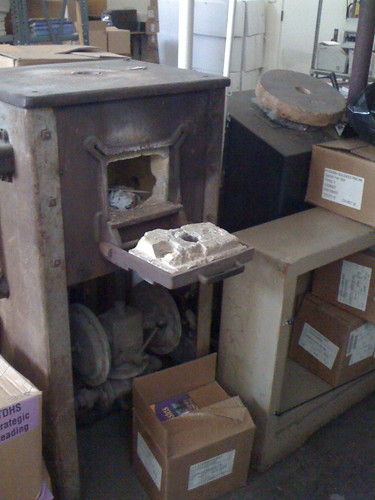
If you have a spare moment, please check out the blog a group of intersession students is currently contributing to. All posts (aside from the sporadic teacher post from Mr. Carlson or myself) are written and (possibly) edited by the students. Yes, there will be occasional typos, grammatical, and spelling errors – isn’t that part of the blogging experience?
In any case, the goal here is for these students to practice documenting and reflecting on the world from their own perspectives. Taking ownership over the news, literally creating the importance for the outsider to the Manual Arts world is a heavy burden. And the students are taking it in stride.
Teaching an intersession elective course at Manual requires overcoming significant challenges, three of which I want to address here:
Significant Intersession Elective Course Challenge (SIECC) 1: Getting the Class Funded
Although students are regularly offered classes when they go “off-track” on our year round schedule, the classes are primarily to make up failed classes. This year, in particular due to budget restrictions, LAUSD did not fund any intersession classes other than the bare minimum of graduate requirement make up classes. Though an intersession class isn’t expensive (a teacher is compensated for 60 hours of work per intersession course) – getting Manual Arts to offer this “Broadcast Journalism” course required the approval of our School Site Council. As a result, Mr. Carlson is able to teach the students for two hours a day over six weeks (I’m helping out a few days each week, but kudos go to Carlson for steering the class).
SIECC 2: Getting the Class Filled
Because students at our school aren’t regularly offered extracurricular off-track opportunities (especially B-Track, since summer internships and programs are offered while these students are just beginning their school year), retention and getting committed students is a challenge. The commitment comes with having an engaging class (again something that deserves a tip of the digital hat to Carlson). The students are mainly coming from my 11th and 12th grade English classes. Because most of these students are enrolled in my class and have likely had Mr. Carlson in the past, we have a strong group of students with a good rapport – the class is filled and rolling.
SIECC 3: Getting Space
Because of our large student population, getting funding for a class isn’t the end of our headache. We needed a room we could routinely use to teach the class. In the past, I’ve taught intersession courses off campus at heavily discounted fees, subsidized by our school’s network partners. This year, we found that a room was available because most teachers would rather travel than use it. In a small upstairs nook in our bookroom, the students are properly ventilated (thanks to the two fans Mr. Carlson bought and the one larger room fan I “borrowed” from the math lab), the students are able to get online (thanks to the numerous laptops we bring in as well as the three desktop computers working at glacial paces), and the students are able to use the space in a timely manner (discounting the lengthy walk to the back of the campus due to construction detours for a long overdue senior quad redesign project).
Before becoming our bookroom three years ago, the room was used as an industrial (“Manual”) arts or auto shop classroom (I get mixed reports). Photos below detail the classroom setting.

A view from our room, looking down on the rows of books.

Looking up to our classroom from the back of the book room.

Oh, all those unopened boxes? Those are just leftover books from when our administration brought in Talent Development without School Site Council approval. No biggie.
Of course, I’m not mentioning other, structural challenges such as difficulties with students accessing the campus while off-track or the constant technology headaches (thanks to Daye for amazing WordPress expertise!), but those will trickle through the more regular posts to come.
As our students continue to gain confidence in their reporting skills, you are encouraged to question and comment on their posts. In the coming weeks students will be podcasting reports on lockdown procedures for schools as well as distributing DVD news reports for local South Central events. Stay tuned!

p.s. Does anybody know what this is? It’s bolted into the book room since the book room wasn’t always a book room. But what is it??